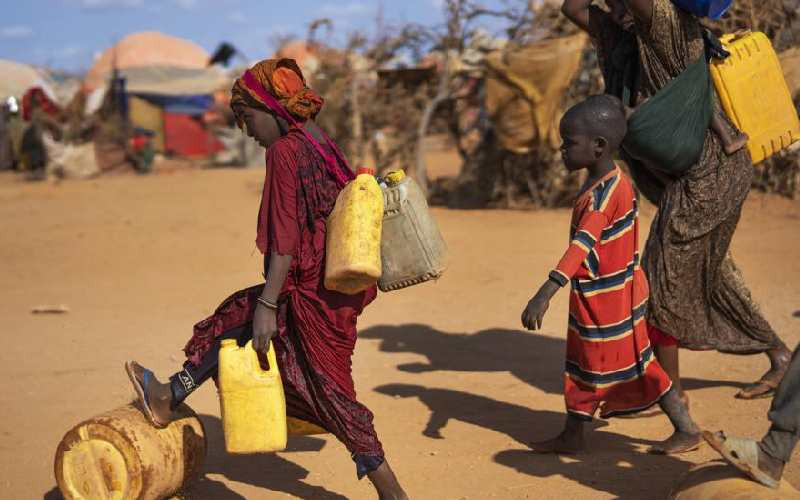×
The Standard e-Paper
Join Thousands Daily

A Somali woman and children carry water at a camp for displaced people on the outskirts of Dollow, Somalia on September 20, 2022. [AP Photo]
The chair of an influential negotiating bloc in the upcoming United Nations climate summit in Egypt has called for compensation for poorer countries suffering from climate change to be high up on the agenda.